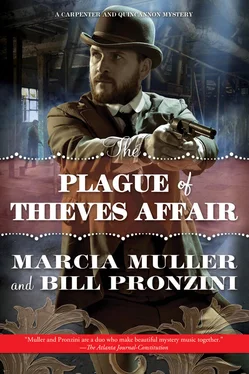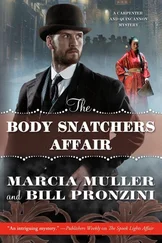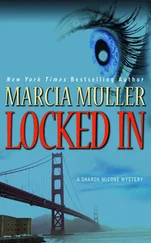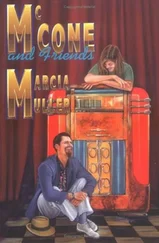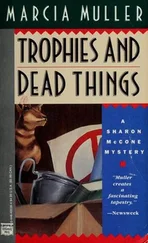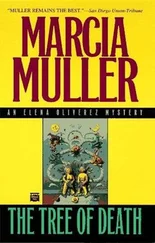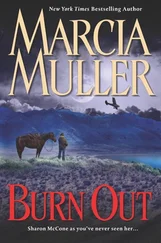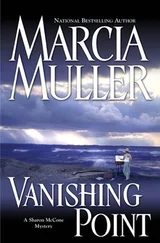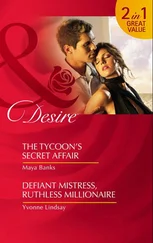S. Holmes please contact colleague S.C.
earliest convenience. Most important.
If he saw that cryptic little message, it ought to be more than he’d be able to resist no matter what he was up to.
Quincannon waited until late afternoon to conduct his search of the brewery storerooms. He left Golden State after his conference with James Willard, went to a nearby saloon to curb his always prodigious appetite with a mug of clam juice and its generous free lunch. Over a second mug, he reviewed the morning’s events in an effort to piece together the puzzle.
Half an hour of this produced what he felt certain must be the why of Caleb Lansing’s sudden dispatch, and a small part of the how. The rest of the how and the who continued to elude him. More information was needed in order to complete his deductions — some of which, if the gods were with him, he would discover in the storerooms. A clue, mayhap, if not actual evidence.
By the time he returned to Golden State, things had quieted down considerably. The loading dock was mostly deserted, some of the workmen having already left for the day. He appropriated a bug-eye lantern from the empty shipping office to supplement the weak electric light in the storerooms, then set off down the passage into the cellars. The only employee he encountered on the way paid him no heed.
With Willard’s master key, he unlocked the storeroom door, slipped inside, and relocked it behind him. The scene of the murder first. The utility room contained nothing that Kleinhoffer and Mahoney had overlooked, or that he might have missed during his first brief inspection. None of the equipment that cluttered it had been disturbed; nor were there any other indications that a scuffle had taken place. The only signs of violence, in fact, were the marks in the bare earth where Lansing’s body had lain.
Quincannon moved on to the room housing the sacked barley. The dusty smells of grain and burlap were thick enough to clog his sinuses and produce several explosive sneezes as he shined the bug-eye over the piled sacks. They were stacked close together, at a height of some five feet, and flush against the back and side walls. Nothing larger than a kitten could have hidden itself behind or among any of them.
He crossed into the other large room. The boxes of yeast and heavy sacks of malt, sugar, and hops stood in long, tightly packed rows along the side walls. No one could have hidden behind or among them, either. The floor at the far end wall was bare; a pair of hand trucks and a pile of empty fifty-pound hop sacks stamped with the name of a company in Oregon’s Willamette Valley lay at the foot of the near end wall. Everything was as it had been when he’d looked in earlier.
Or was it?
No. Something seemed different now...
Quincannon stood for a time, scanning the room and cudgeling his memory. What the devil was it? He poked at the boxes, the hand trucks, the empty hop sacks — futile effort, all of it. Something was altered, he felt sure of it, but whatever it was continued to elude him. He curbed his frustration with a counsel of patience. The room was now firmly fixed in his mind’s eye; it would come to him eventually.
He used his handkerchief to clean smudges of yellow powder from his fingers, unlocked the outer storeroom door, and made sure the cellar corridor was empty before stepping out and reusing the key. Five minutes later he was mercifully free again of the brewery’s enticing fragrance and on his way to catch a Market Street trolley.
Sabina, he was pleased to discover, was at her desk when he entered the offices of Carpenter and Quincannon, Professional Detective Services. Because he cared so much for her, he had grown sensitive to her moods; he was immediately aware that hers today was something new and not a little encouraging. She seemed more pleased than usual to see him, her welcoming smile a bit brighter and with a touch of warmth normally lacking in her professional demeanor. And was that a speculative gleam in her brown-eyed gaze, as though she might at long last be measuring him as a potential suitor?
Yes. It was neither imagination nor wishful thinking — he was certain of it. Her attitude toward him was definitely softening, as her willingness to accept his invitations to social engagements over the past few months indicated. It surely must be, then, even though she refused to say so, that she was no longer adamant that their relationship remain a business-only one.
Quincannon’s pulses quickened at the thought. He beamed at her. “You look lovely today, my dear,” he said, which was no exaggeration. Her shirtwaist was pale blue, with a large cameo at the throat of its high collar; her skirt was of soft gray wool which covered perfectly formed ankles (he’d had all too fleeting glimpses of them now and then); and her black hair, drawn back into its usual chignon and fastened with an ivory comb, glistened silkily in the electric light. “If I may say so.”
“You may. No woman is immune to a genuine compliment.”
Her response was likewise encouraging. So was the faint flush of color that tinted her cheeks. He warned himself to continue to proceed with caution — and then made the mistake of disobeying the warning by saying without weighing the words in advance, “No woman is more deserving. I’ve many more to pay you, though perhaps in more intimate surroundings.”
Abruptly the gleam in her eyes vanished. “Is the prospect of intimacy why you’re grinning like the Cheshire cat?”
Quincannon hadn’t realized that he was. He abolished the grin and hid his perplexity by fluffing his whiskers. Just that quickly her demeanor had shifted from mildly (very mildly) flirtatious to coolly businesslike. Women and their mercurial moods! If ever a man were to devise a mathematical equation that satisfactorily explained them, he would be hailed as a genius greater than Archimedes or Sir Isaac Newton.
He repressed a sigh and asked how her day had gone.
“Reasonably well. Marcel Carreaux and Andrew Rayburn were here to finalize arrangements.”
“Who? Oh... the security job for that traveling exhibit at the Rayburn Gallery. Handbags Across the Years or some such.”
“Reticules Through the Ages.”
“A handsome fee, as I recall, for what is bound to be a dull and uneventful undertaking. Any Barbary Coast or East Bay scruff caught snaffling handbags, even ones bristling with gems, would be the butt of jokes by his fellows for the rest of his days.”
“Be that as it may, our clients consider the security necessary. And you needn’t worry about having to attend.”
“For which I’m grateful. Your day was much better than mine, I must say.”
“Oh? Things didn’t go as planned at the brewery?”
“No. I’ve spent the day in the company of louts and knaves, one of them a corpse.”
“Corpse? Whose?”
“Caleb Lansing, the man responsible for the murder of the brewmaster and theft of his steam beer formula. One of the men, I should say. Lansing himself was murdered this morning under bizarre circumstances.”
“What happened?”
Quincannon crossed to sit at his desk, where he proceeded to clean the bowl of his briar with a penknife while he gave Sabina a somewhat encapsulated account of what had taken place at the brewery. Her eyes widened as he spoke, and when he was done she said, “I don’t see how Lansing’s death could have been murder and not suicide. He died alone behind two locked doors, one of which you say you had under surveillance.”
“Four good reasons, all of which escaped everyone’s notice except mine. First, he had no weapon when I braced him in the fermenting room. A pistol the size and shape of a LeMat would have made a conspicuous bulge in his clothing. And if he had been armed, he surely would have drawn down on me instead of running like a frightened rabbit.”
Читать дальше
